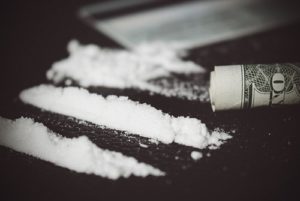 Although the opioid epidemic has recently taken the spotlight and overshadowed the devastating impact of other substances, the use of cocaine has remained steady since 2009. Cocaine is a potent stimulant drug. It comes in a powder form and also a solid rock form typically known as ‘crack’. If you feel someone you know and love may have a problem with cocaine, there are many clear warning signals to look for.
Although the opioid epidemic has recently taken the spotlight and overshadowed the devastating impact of other substances, the use of cocaine has remained steady since 2009. Cocaine is a potent stimulant drug. It comes in a powder form and also a solid rock form typically known as ‘crack’. If you feel someone you know and love may have a problem with cocaine, there are many clear warning signals to look for.
Red flags for signaling active use
Individuals who are actively abusing cocaine can develop physically, as well as behavioral emotional/mental changes which can manifest as, warning signals to loved ones. Physical indicators of cocaine use include:
- A continual runny nose
- Frequent nosebleeds
- Needle, or track marks from the those who inject cocaine intravenously, typically noticeable on their arms
- Twitching or shaking, often displaying rapid body movements
- Increases in normal body temperature
The following indicators of behavioral and emotional/mental changes may include:
- Frequent mood swings (happy or excited swiftly shifting to anger, nervousness, or paranoia)
- Loss of normal sleep and eating patterns
- Very strong urges or cravings to take more cocaine
- Rapid speech
- Nervousness or restlessness
- Loss of control and ability to limit the amount or frequency of cocaine used
Red flags of cocaine withdrawal
Many individuals develop symptoms of withdrawal when trying to limit their cocaine intake or stop using all together. Signs of cocaine withdrawal are:
- Reoccurring, very vivid nightmares
- Suspicion of people and things around them
- Overt sadness or depression
- Overwhelming tiredness and lack of energy
- Restlessness, agitation, and general discomfort
- Increase in appetite
If someone you know is struggling with cocaine addiction, and they’re ready to get help, Houston has many resources available, including detox facilities, inpatient/residential rehab, intensive outpatient treatment programs, counseling, and many Twelve Step groups. The Council on Recovery is often the starting place for people seeking outpatient rehab and counseling, as well as help for family members. Call 713.942.4100 or visit www.councilonrecovery.org
https://easyread.drugabuse.gov/content/signs-cocaine-use-and-addiction
https://medlineplus.gov/ency/article/000947.htm
